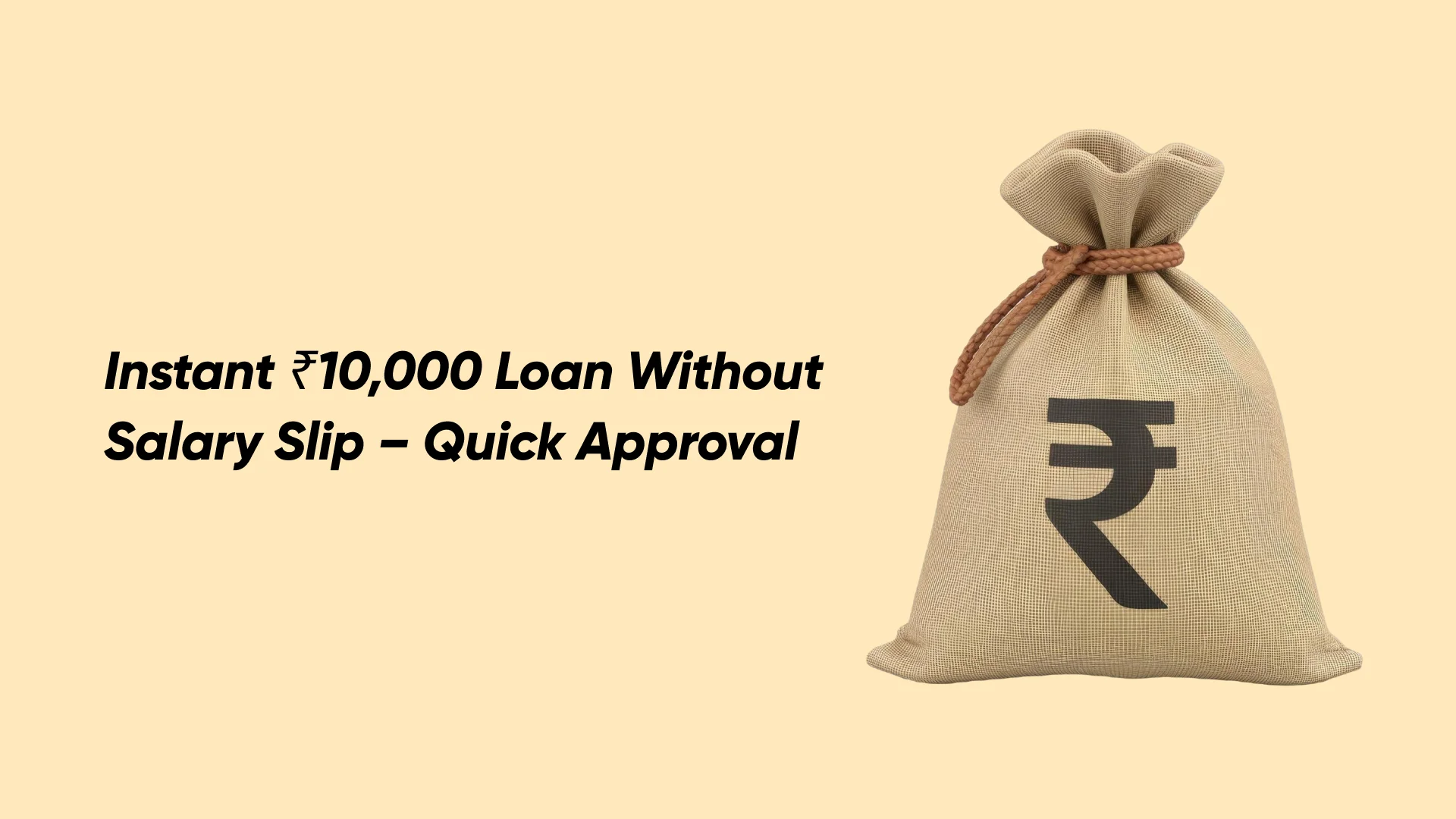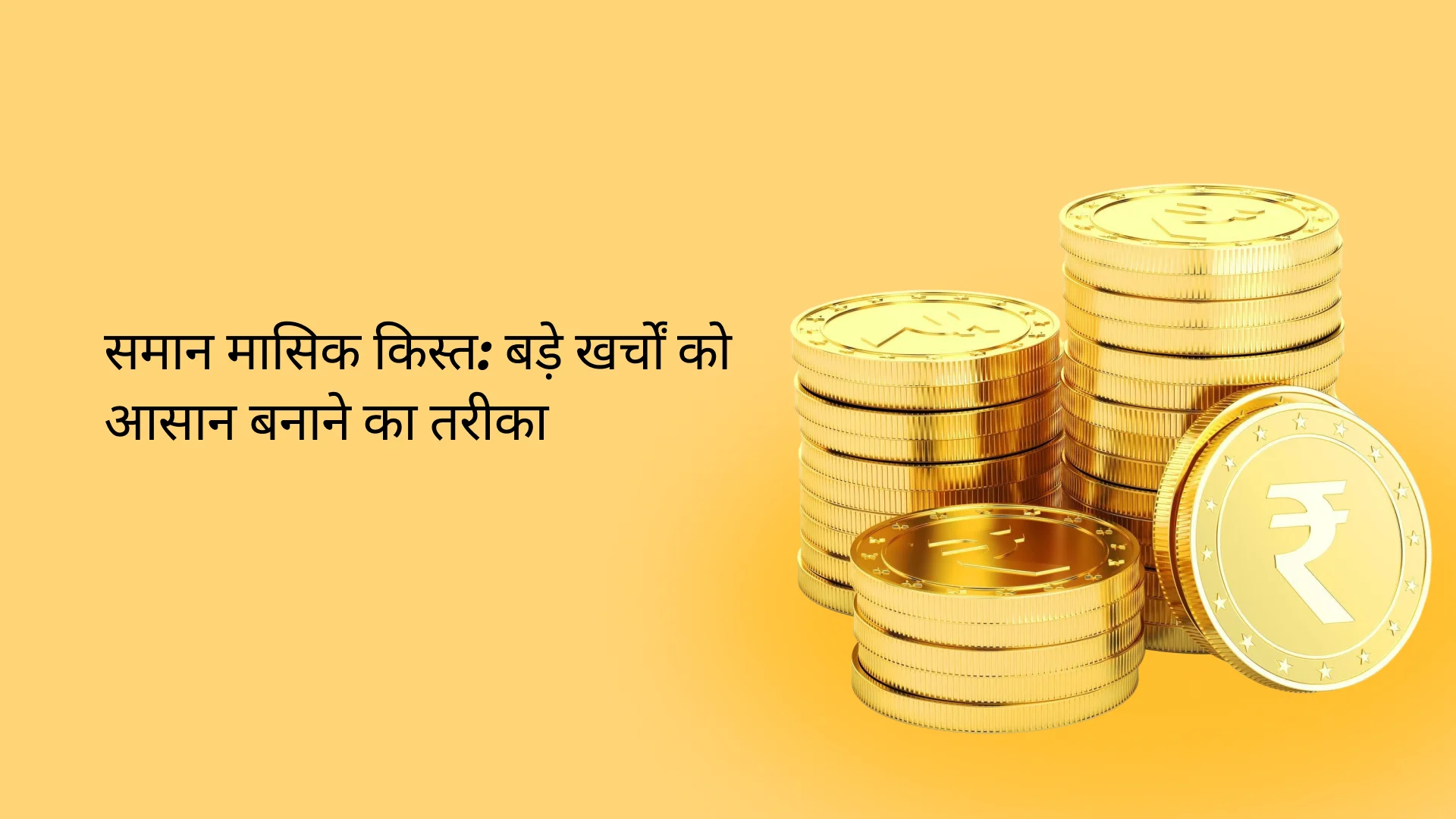Zero or Negative Credit Score: What It Means and Its Impact

Credit score is a metric that provides insight into creditworthiness and how likely one can pay new debts. Since CIBIL is the most popular credit information company, credit score is commonly called CIBIL score in India. This score is usually in the range of 300 to 900. Lenders typically use this metric to approve a loan or credit to an individual. A high credit score leads to quick approval and makes one eligible for beneficial loan terms and conditions, like instant personal loan sanctions, lower interest rates, and longer repayment tenure.
But what if you get a zero or negative credit score? This article explores what it means and its impact on loan applications.
Table of Contents
ToggleWhat is a Zero or Negative Credit Score?
Zero credit score means no credit history. This usually indicates there are no records of loan or credit taken by you. Thus, credit bureaus cannot calculate and check your credit score as there is no data.
On the other hand, a negative credit score means the individual has not opened any credit account or taken any loans. It implies that the person has no credit history for the last 2 consecutive years. In rare cases, a negative CIBIL score can be due to an error in your credit report. In that case, you need to raise a dispute with the designated credit bureau and get it rectified.
Causes of a Zero or Negative Credit Score
Zero or Negative Credit Score can be due to any of the following reasons mentioned:
Irregular credit payments: Your payment history has the biggest impact on your CIBIL score. A 30-day delay can reduce your score by 100 points, as per CIBIL analysis. Ensure you pay loan EMIs and credit card bills on time. If you miss or delay any payment, it reflects poorly on your credit score.
Maxed-out credit cards: You should ideally utilise 30% of your credit limit. If your credit card usage is more than 50% of the card limit, it raises a red flag to the lender and can negatively impact your credit score. Let’s say your credit card has a limit of Rs. 5,00,000, 30% of this amount is Rs.1,50,000 and you can spend it without impacting your CIBIL score.
Paying Minimum Amount of the Due: It is risky to pay only the minimum debt amount due on your credit card. The minimum debt due is only a small part of the debt owed and interest will keep adding up on the remaining amount. It implies to your lender that you struggle to pay that debt. Therefore, it is important to pay the entire amount of your credit bill each month.
Other factors that cause a zero or negative credit score include multiple credit card applications, outstanding debts, errors in CIBIL reports, or closing old credit card accounts.
Also Read: How to Improve Cibil Score: 10 Smart Tips
Impact of Zero or Negative Credit Scores on Your Financial Health
Credit score is a key indicator of one’s financial health and maintaining a high credit score helps you to build more wealth.
Difficulty in Getting Loan: Banks and other financial institutions reject loan applications if you have a low or zero credit score. Zero credit score indicates that the individual has low creditworthiness. Even if you manage to get a loan, you may get a personal loan at a high interest rate. This can significantly impact your finances, especially when applying for an education loan or home loan.
May Limit Rent Options: Many landlords insist on a credit score check before renting their property. A low or zero credit score may lead them to ask for a high deposit amount or cancel renting their property altogether.
Credit Card Limit: Zero or negative credit score directly impacts whether you get credit card approval or not. There is a high possibility one may not even qualify for credit cards with a low CIBIL score. The person may get only a secured credit card with limited benefits.
Hampers Job Opportunities: Several management roles or positions that require handling money require that the employer check your credit score. If the credit score is zero or low, it may imply that the individual is bad at managing finances and may not get hired.
Business Impact: Businesses or entrepreneurs may require loan or capital. Lenders or investors may not be keen to invest if there is a low credit score.
How to Improve a Zero or Negative Credit Score
While a zero or negative credit score is bad for financial health, there are actionable steps you can take to improve your credit score.
Pay Credit Bills on Time: Delay in paying credit card dues impacts your CIBIL score. Ensure to pay credit bills in full amount and on time, each month. Avoid paying the minimum due, since the remaining due adds to the interest.
Check for Errors: CIBIL may make errors in credit reports or cause delays in updating records. This may poorly impact your credit score. If you find any errors, raise a dispute to CIBIL online and get it resolved
Keep Old Credit Card Accounts: The length of the account impacts your credit score. A long credit history gives the lender insight into all the debts paid in the past. Keep your old credit card account open, since closing it hurts your credit score.
Maintain Credit Limit: Try to utilise up to 30% of your credit limit. If your credit card usage is more than 50% of the card limit, it negatively impacts your credit score.
Common Myths About Zero or Negative Credit Scores
Myth 1: Checking Credit Report Lowers Your Score
Checking your credit report does not hurt your credit score (soft enquiry). It is a good habit to check your credit report every 3-6 months since it helps you to manage your finances better. In case you apply for credit from multiple lenders in a short span, it leads to a hard enquiry from lenders and your credit score takes a dip.
Myth 2: Low Credit Score Lasts Forever
Low credit score is not permanent. A good credit score can be built over time by adhering to best practices like clearing debts and paying credit bills. Regular and timely payments will improve your credit score
Myth 3: Credit Score Depends on Your Annual Income
Credit score does not depend on your annual income. It depends on your credit profile and how well you manage them. A person getting 10 lakhs personal loan may have a low credit score due to irregular credit payments. Similarly, someone availing 4 lakhs personal loans may have a high credit score, if they manage the profile well.
Myth 4: Anyone Can Check Your Credit Score
Only authorized entities, like lenders or credit bureaus, can check your score with your consent, ensuring privacy and protecting against unauthorized access.
Myth 5: Low CIBIL Score Means No Loan
A low CIBIL score can affect loan approval but it does not mean outright rejection. Several other factors can influence your loan application such as your income, age, employment type and co-applicant credit score. Since your credit score is low, you may get a loan approved at a higher interest rate.
Difference Between Zero, Negative, and Low Credit Scores
Zero Credit | Negative Credit | Low Credit | |
Meaning | Zero credit score means a credit bureau has no credit history of an individual | Negative credit score implies false data was reported or there is no credit history in the past 2 years | Any score below 580 implies a low or bad credit score |
Causes | No credit or borrowing history | Defaults, bankruptcy | Delay in credit dues, maxed out credit cards, only minimum dues paid |
Loan Approval | Low | Poor | Low |
Credit Approval | Hard | Very Difficult | May get approved |
Recovery Time | Quick recovery with positive credit activities | Slow recovery, take significant positive credit activities | Moderate recovery with positive credit activities |
Causes | No credit history | No data on credit history or errors in reports |
Steps to Take a Loan if You Have a Zero or Negative Credit Score
If you need to take a loan, you need to start building a positive credit history. Check out these key pointers which will help you build a good CIBIL score and make you eligible to get your loan approved.
Review Credit Reports: Regularly review your CIBIL credit report for any defaults or late payments. You also must check if there are any errors and get them resolved with the designated credit bureau.
Take Secured Loans: Apply for a secured loan like a joint loan or secured credit card. Getting a loan on a collateral like gold or real estate can prove to be much easier than taking an unsecured loan.
Pay Debt in Time: If you have any existing loans, pay those EMIs on time.
Show Stable Income: If you can provide proof of a stable source of income, it will help you get a loan approved.
Find a Co-Signer: A co-signer with a good credit score can improve your chances of getting a loan approved. However, it is important to make timely payments as any delay can negatively impact the co-signers credit score as well.
Smaller Loans: Taking a smaller loan from NBFCs can be a step ahead in building your creditworthiness.
Also Read: Secured vs. Unsecured Loan: What is the Difference?
Conclusion
Negative or zero credit score significantly impacts your financial wealth. To build a strong financial profile you need to keep regular track of your credit score. Ensure you take smaller loans, pay timely debts, and keep credit card usage to minimum to build a positive credit history. A positive credit history goes a long way in getting big loans approved at lower interest rates and getting credit cards with numerous benefits. Thereby, significantly improving your financial standing.
Frequently Asked Questions
What Happens If Your Credit Score Is 0?
If you have a zero credit score, it implies you have no credit history. Thus, the credit bureau has no data to analyse and arrive at a score.
Is It Good To Have A Zero Credit Score?
Zero credit score can pose an issue if you intend to apply for a loan. Banks cannot gauge your creditworthiness. In case they do approve your loan, they may charge higher interest on the loan amount.
How To Resolve Negative Account In Cibil?
To resolve any negative account in CIBIL score, clear all the dues remaining. If there are any errors in the CIBIL report, raise a dispute via CIBIL’s Dispute Resolution Process.
Can I Get A Loan If My Cibil Score Is Zero?
Yes, you can get a loan if your CIBIL score is zero. Lenders may consider other factors like age, employment status and co-signer credit (if applicable), to approve loans.
Can You Fix A Negative Credit Score?
Yes, you can fix a negative score by following these tips;
1. Pay credit bills on time,
2. Check for errors,
3. Keep old credit card accounts open,
4. Maintain credit limit
How To Increase Cibil Score From 0?
Zero CIBIL score implies no credit history. To build a positive credit history you can take a small loan on consumer goods, get a credit card and keep usage to minimum usage. Pay credit bills on time and keep track of your credit history.
How Long Can Negative Credit Stay?
Negative credit information stays on for upto 7 years on the credit report.
YOU MAY ALSO LIKE

Search by posts
Recent post
-
 Instant ₹10,000 Loan Without Salary Slip – Quick Approval
Instant ₹10,000 Loan Without Salary Slip – Quick Approval
-
 समान मासिक किस्त: आपकी वित्तीय खर्चों को आसान बनाने वाला तरीका
समान मासिक किस्त: आपकी वित्तीय खर्चों को आसान बनाने वाला तरीका
-
 Apply for 50000 Rupees Loan Urgently: Get Disbursed in Few Minutes
Apply for 50000 Rupees Loan Urgently: Get Disbursed in Few Minutes
-
 How to get Instant Loan on Aadhaar Card without Salary Slip
How to get Instant Loan on Aadhaar Card without Salary Slip
-
 How to Apply for a Rs. 25,000 Loan on an Aadhaar Card?
How to Apply for a Rs. 25,000 Loan on an Aadhaar Card?
Categories
- Blog (6)
- Credit History (36)
- Credit Line (7)
- Festive (4)
- Finance (15)
- Mutual Fund (19)
- Personal Loan (276)
- Tax (8)
- Zype (4)













